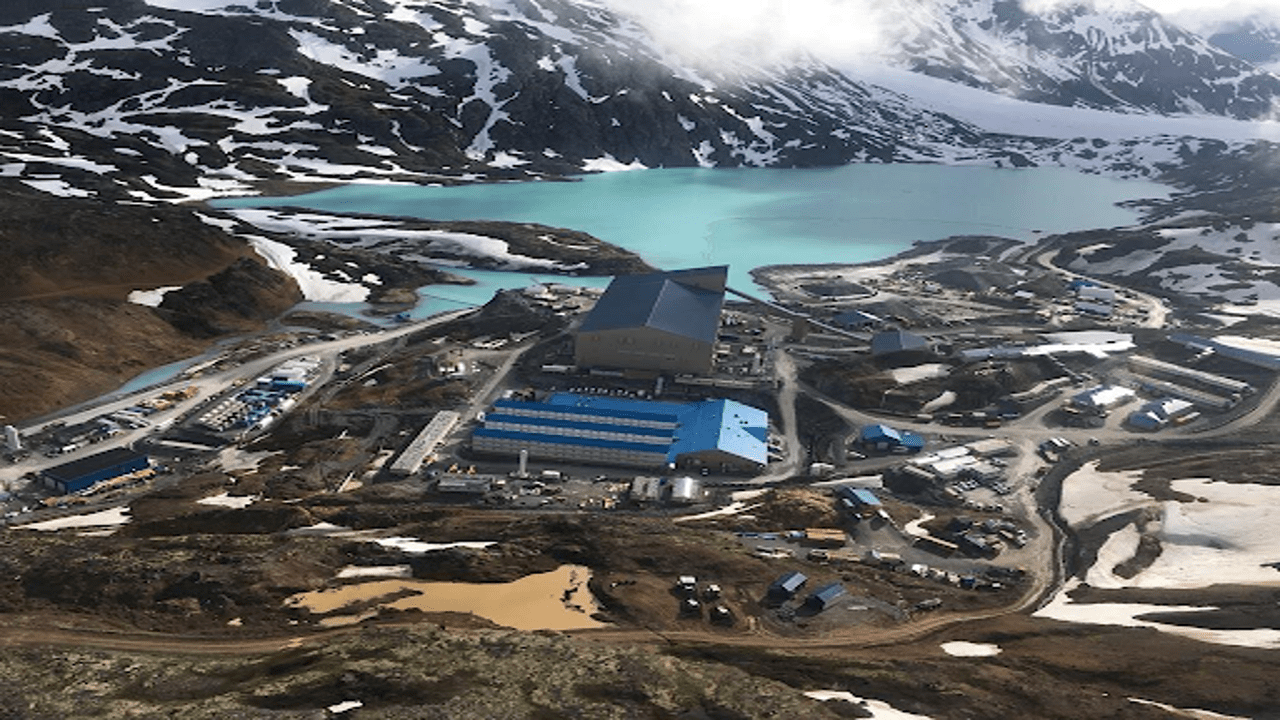
Brucejack Mine, located in British Columbia, is seen in this undated photo. The mine is part of Nations Royalty’s portfolio of royalty assets, through Nisga'a Nation. (THE CANADIAN PRESS/HO Nations Royalty)
In June, Nations Royalty Corp., a new venture, began trading on the TSX Venture Exchange, marking a significant step in Indigenous economic reconciliation. Quietly, it became the world’s first mining royalty company majority-owned by Indigenous people.
Backed by Canadian mining magnate Frank Giustra, Nations Royalty offers investors a unique opportunity to access Indigenous-owned royalties. For the Nisga’a Nation, which owns 77% of the company, this initiative represents a pivotal move toward economic independence.
“Our goal is financial independence,” said Charles Morven, secretary-treasurer of the Nisga’a Nation. “We want to manage our own wealth and reduce reliance on government funding.”
The business model is straightforward: most mining projects in Canada operate on Indigenous lands. Mining companies often sign agreements with Indigenous groups, which include royalty payments tied to a mine’s production or profits. Nations Royalty consolidates these royalties into a single, publicly traded entity, allowing investors to diversify their exposure to mining while creating a stable revenue stream for Indigenous shareholders.
Rob McLeod, the company’s CEO, shared ambitious plans. “We aim to build a top-five royalty company. The scale of Indigenous royalties in Canada makes this achievable,” he said. Currently, Nations Royalty holds royalties from five mining projects in British Columbia’s “Golden Triangle” and is exploring partnerships with other First Nations to expand its portfolio.
For Indigenous communities, pooling royalties through such a company offers an opportunity to monetize agreements that may not yet generate revenue, especially for mines still under development. It also spreads financial risk. McLeod noted that smaller First Nations with only one mine stand to benefit significantly from joining a collective enterprise.
Ken Coates, an expert on Indigenous economic development, praised Nations Royalty as an innovative example of collaboration. “It’s a strong demonstration of Indigenous collective enterprise and resourcefulness,” he said, pointing out that this reflects progress toward economic reconciliation, as envisioned by Canada’s Truth and Reconciliation Commission.
The company's leadership team is predominantly Indigenous, though McLeod, a non-Indigenous interim CEO, said he aims to transition the role to an Indigenous leader in the future. For the Nisga’a Nation, the venture is not just about wealth creation but also about overcoming barriers in financial markets.
“We’ve faced racism in capital markets,” Morven said, recalling challenges in attracting investment. “This company will help us build financial and institutional capacity, empowering us to access capital markets independently.”
Nations Royalty reflects a significant evolution in Indigenous enterprise, one that Coates described as emblematic of a broader shift. “Decades ago, a small business venture was a milestone for Indigenous communities. Today, we’re seeing initiatives like this, which are transformative,” he said.















